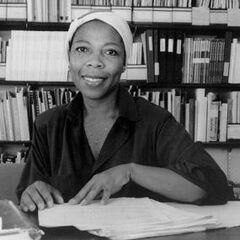This is a raw, visceral read and I’m glad I read it in a group discussion. First published in 1975 and edited by Toni Morrison, it was Gayl Jone’s debut novel.
 Written when the author was 26 years old, a similar age to her young protagonist Ursa Corrie (Corregidora) when we first encounter her. Ursa sings blues in a bar, the first paragraph of the book, reads like a piece of flash fiction, a story in 150 words. Of her marriage to Mutt in Dec 1947, his dislike of her singing after their marriage because he believed marriage changed all that.
Written when the author was 26 years old, a similar age to her young protagonist Ursa Corrie (Corregidora) when we first encounter her. Ursa sings blues in a bar, the first paragraph of the book, reads like a piece of flash fiction, a story in 150 words. Of her marriage to Mutt in Dec 1947, his dislike of her singing after their marriage because he believed marriage changed all that.
“I said I sang because it was something I had to do.”
And in April 1948 after threatening publicly to remove her from the stage, other men throw him out, but he is there waiting for her outside at the end, after that evening her short-lived marriage is over and another man waits for her.
Much of the novel is relayed in dialogue and in sections that reconnect with the past, with things her mother told her, that her grandmother has said to her, and conversations that took place between the grandmother and the great grandmother that Ursa asks her mother about. She visits her mother to ask more about the unsaid.
She sat with her hands on the table.
‘It’s good to see you, baby,’ she said again.
I looked away. It was almost like I was realizing for the first time how lonely it must be for her with them gone, and that maybe she was even making a plea for me to come back and be a part of what wasn’t anymore.
There are things she wants to know, an oral history that is supposed to be passed down to protect them, however there are subjects her mother hasn’t opened up about. About Corregidora, a 19th century slavemaster who fathered both her mother and grandmother. And who her father was.
‘He made them make love to anyone, so they couldn’t love anyone.’

Photo by cottonbro on Pexels.com
Ursa feels those things in her, the inherited trauma, but doesn’t understand it. We witness her reactions to things, the duality of her strength at standing up for herself alongside her inability to speak at all.
She has both strength and reticence.
The attack by her husband landed her in hospital, and resulted in doctors removing her womb, the forced sterilisation of Black women part of America’s eugenics policy at the time. This causes Ursa to reflect on the broken line, the passing down of the oral history, the need to ‘create generations’. What is her place now that she is the end of a lineage.
But I am different now, I was thinking. I have everything they had, except the generations. I can’t make generations. And even if I still had my womb, even if the first baby had come – what would I have done then? Would I have kept it? Would I have been like her, or them?

Photo by Pixabay on Pexels.com
Trauma experienced pre-conception changes a persons DNA and is passed on. It need not be explained, it is most often not understood, it is lived out through experiences and reactions to them. Present from conception, inherited without notice, it is no wonder that children who inherit both the trauma of the victim (slave or slave descendant) and the DNA of the perpetrator (slave master) are confused, both one thing and its opposite, neither nor, either or.
It was as if she had more than learned it off by heart, though. It was as if their memory, the memory of all the Corregidora women, was her memory too, as strong with her as her own private memory, or almost as strong. But now she was Mama again.
As James Baldwin put it,
“it dares to confront the absolute terror which lives at the heart of love”
Further Reading
Virago Press: Where To Start With Gayl Jones
Article, New Yorker: Gayl Jones’s Novels of Oppression by Hilton Als
Article, The Atlantic: The Best American Novelist Whose Name You May Not Know by Calvin Baker
Essay, New York Times: She Changed Black Literature Forever. Then She Disappeared. In Search of Gayl Jones, whose new novel breaks 22 years of silence by Imani Perry.
Gayl Jones, Author
 Gayl Jones was born in Kentucky in 1949. She attended Connecticut College and Brown University. She is a novelist, poet playwright, professor and literary critic.
Gayl Jones was born in Kentucky in 1949. She attended Connecticut College and Brown University. She is a novelist, poet playwright, professor and literary critic.
She wrote Corregidora (1975), Eva’s Man (1976), and The Healing (1998) which have all recently been republished as Virago Modern Classics.
The Healing was a fiction finalist for the National Book Awards in 1988.
Her most recent and long awaited novel is Palmares (2021).

Nice find.
LikeLike
A great novel on many levels, but one that surprised me when I read it some time ago is how Jones works the blues Corregidora sings into how she structures the book and how the prose sounds. Morrison’s quote about the book was so perceptive.
LikeLiked by 1 person
That’s so interesting what you say about the blues Julé, one of the group members shared some tracks by Kentucky blues singers from the mid-20th century Helen Humes (You Played On My Piano + Million Dollar Secret) and Edith Wilson (My Handy Man Ain’t Handy No More). The presence of the blues and the act of singing indeed embraces that dual aspect so present in the novel, of feeling blue and yet feeling better for being able to sing it.
LikeLiked by 1 person
Now that’s a good idea to pair music with the book, it would certainly add a whole other layer of richness to the reading.
LikeLike
This sounds like an incredibly powerful read, Claire. You may be aware of it already, but if not…the Backlisted Podcast team covered this novel a few years ago. I can’t quite recall the guest (possibly Sarah Churchwell?), but I do remember it being a very interesting discussion.
LikeLike
Thanks for the tip Jacqui, I look forward to having a listen! I’m planning on reading the other two that Virago have reprinted, so it’ll be interesting to hear what they have to say about Gayl Jones work.
LikeLike
This sounds like a very powerful read. On the wish list it goes. Thanks!
LikeLiked by 1 person
I hope your wish comes true Emma!
LikeLike
So I just recently learned that Gail Jones and Gayl Jones are not the same author and one reason why this was so consistently confusing for me is that I want to read them both, from start ’til stop. This one for sure (it’s wonderful it’s been reissued).
LikeLike
I hadn’t heard of Gail Jones,but yes, definitely not the same author. Watch this space for more Gayl Jones soon.
LikeLike
Reading some of the recent essays re: Gayl Jones that you reference here has me wanting to go back to ‘Corregidora’, which I read a long time ago. I knew nothing of what she experienced in the world of publishing, and her retreat from the public eye, and that has me ever more curious about her new book as well.
LikeLike
I’m planning to read the three Viragos as they do seem like a set, and it is indeed interesting to have the context provided by the essays. It is wonderful that she is back with Palmares, I hope that might mean there is more to come.
LikeLike